Helping where
it matters
Gathering for a family meal. Planting seeds for a sustainable life. Bonding over the stove with loved ones. These experiences, which many often take for granted, are mere dreams for millions of people around the world experiencing acute food insecurity.
These millions of people have been deprived of this basic human right by conflicts, recurring and more extreme natural hazards and economic crises.
Production: MYOP, 2024. Directors: Olivier Jobard, Olivier Laban-Lattei, Julien Pebrel - from MYOP. Editing: Claire Billet.
Production: MYOP, 2024. Directors: Olivier Jobard, Olivier Laban-Lattei, Julien Pebrel - from MYOP. Editing: Claire Billet.
As the global food crisis remains alarmingly high, the European Union is intensifying its efforts to alleviate the suffering of vulnerable communities.

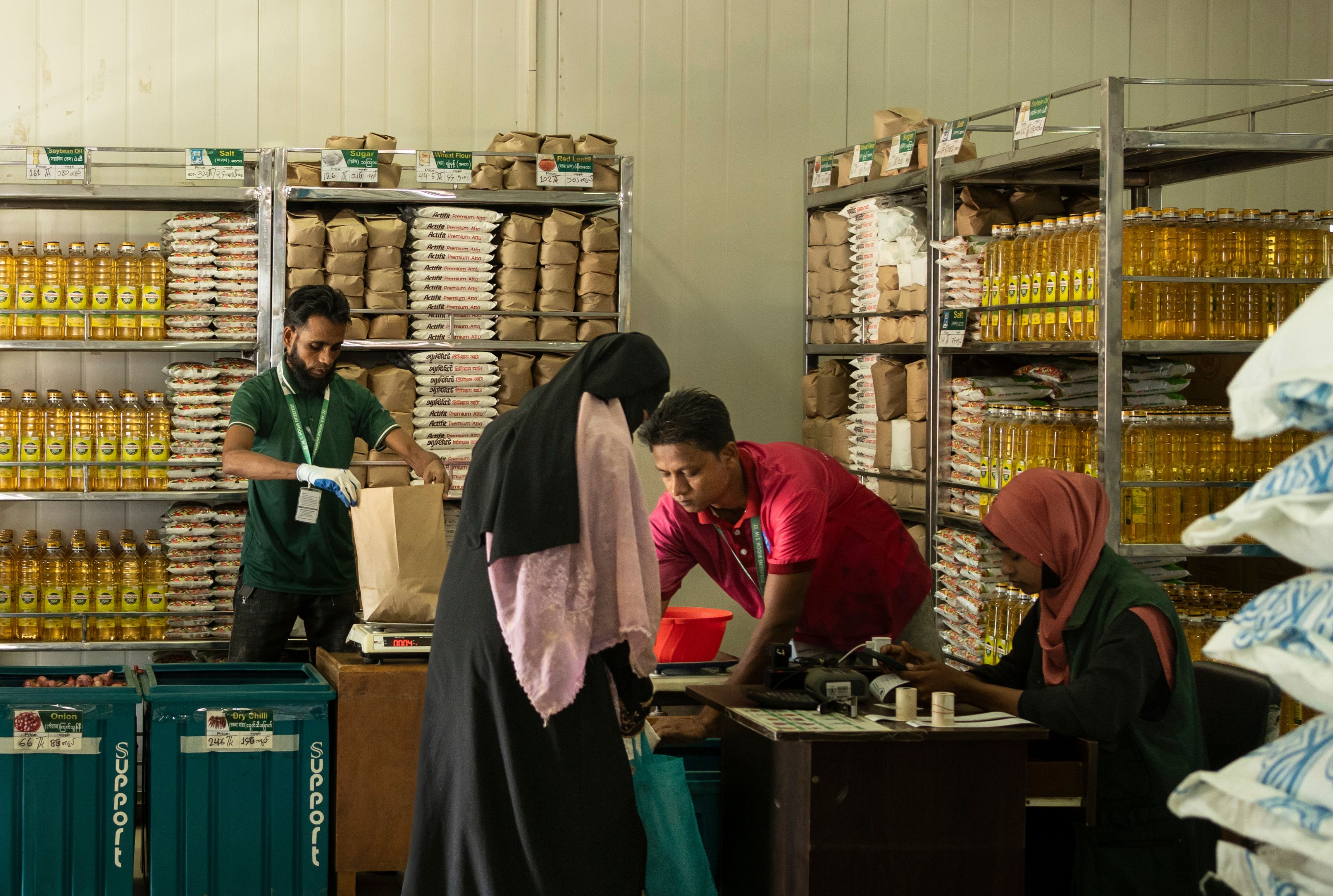
© Olivier Jobard/MYOP for ECHO
© Olivier Jobard/MYOP for ECHO
Since 1992, we have reached millions of people
With 200+ humanitarian partners and over 50 field offices, the EU’s humanitarian aid operations tackle the most urgent needs and contribute to addressing hunger through cash assistance, in-kind food aid and support for livelihoods to those in acute need.
Over the past three decades, we have helped vulnerable communities in more than 110 countries regain a sense of normalcy and a taste of hope.

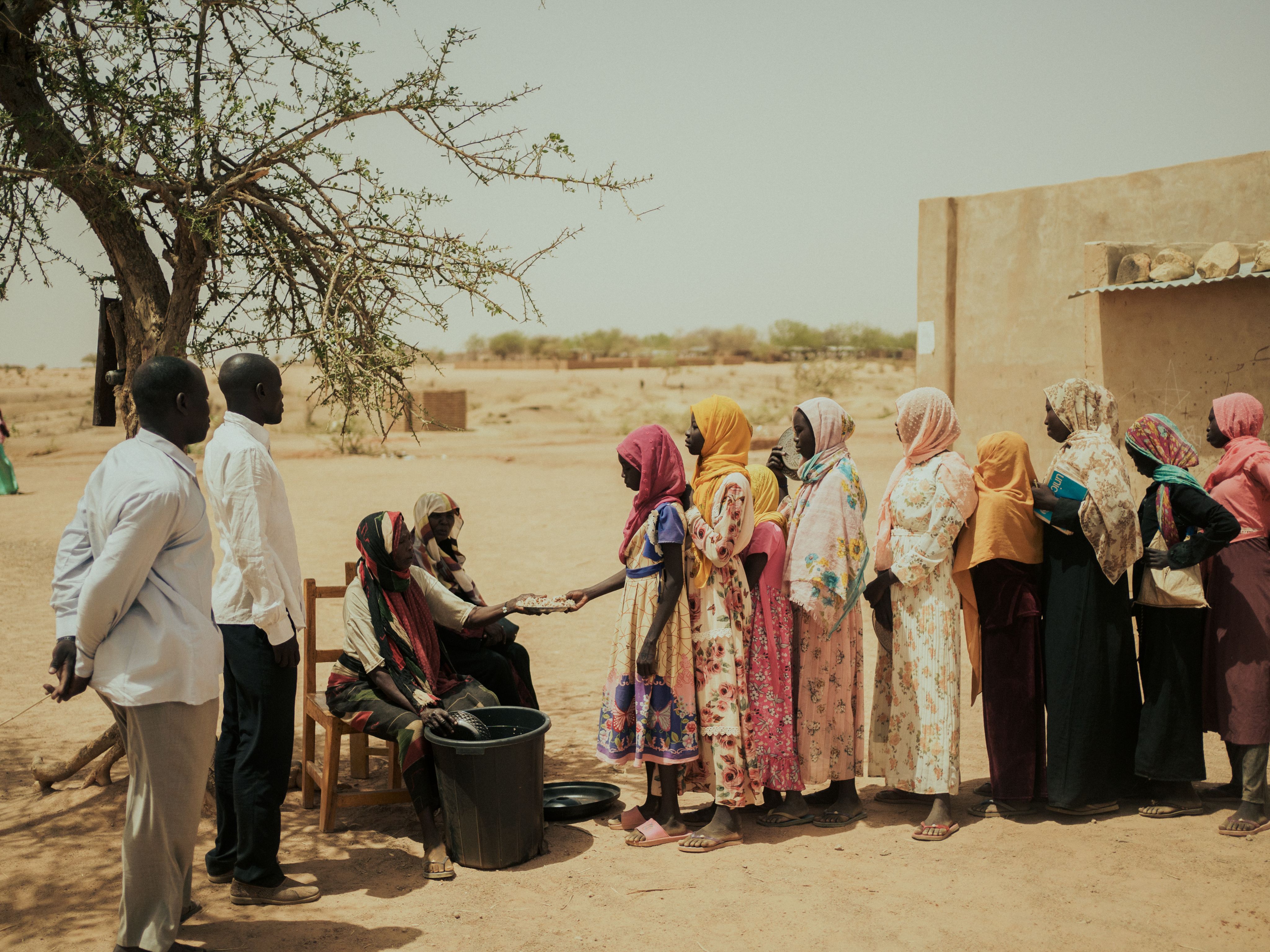
Feeding hope around the globe

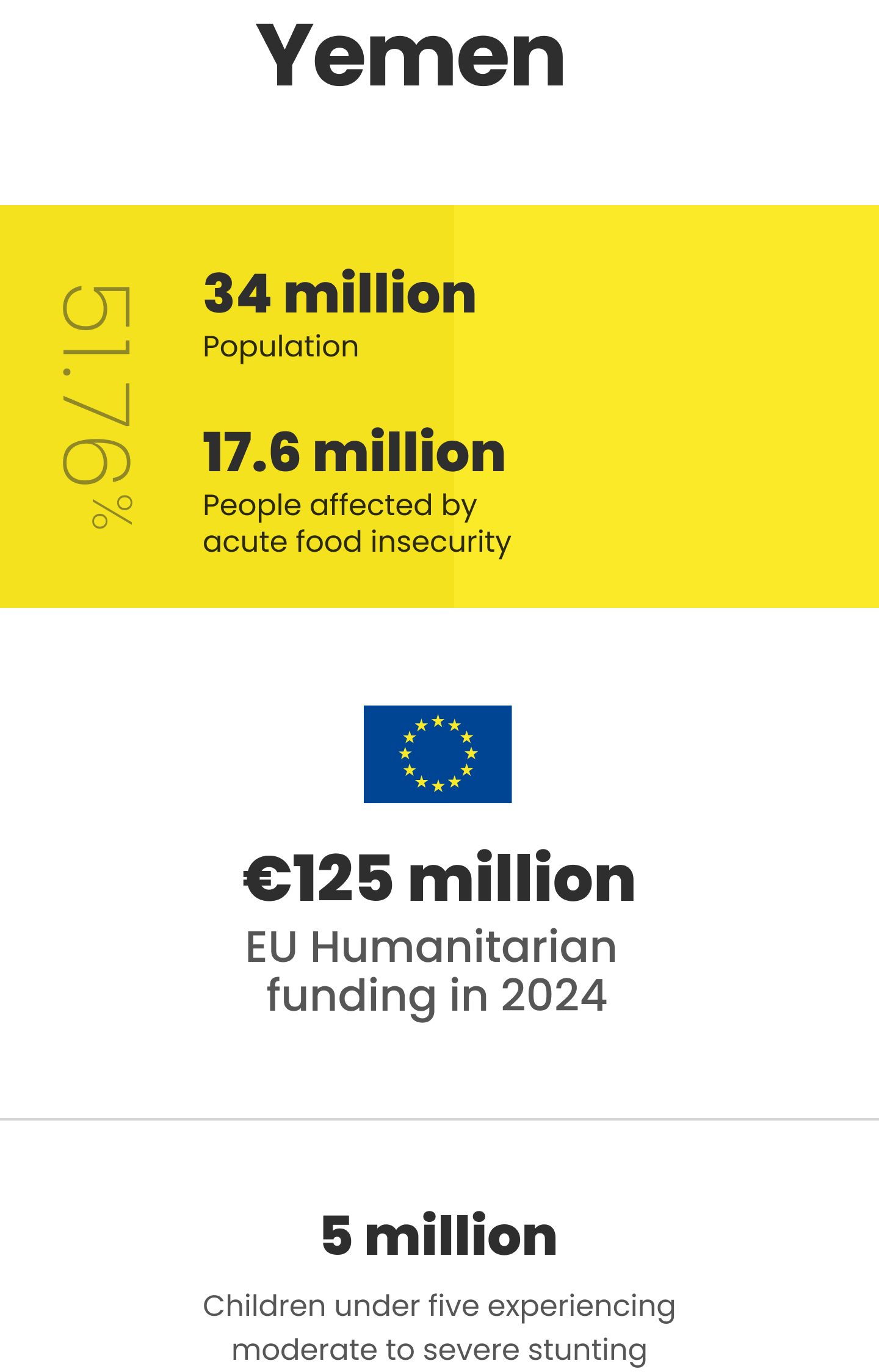
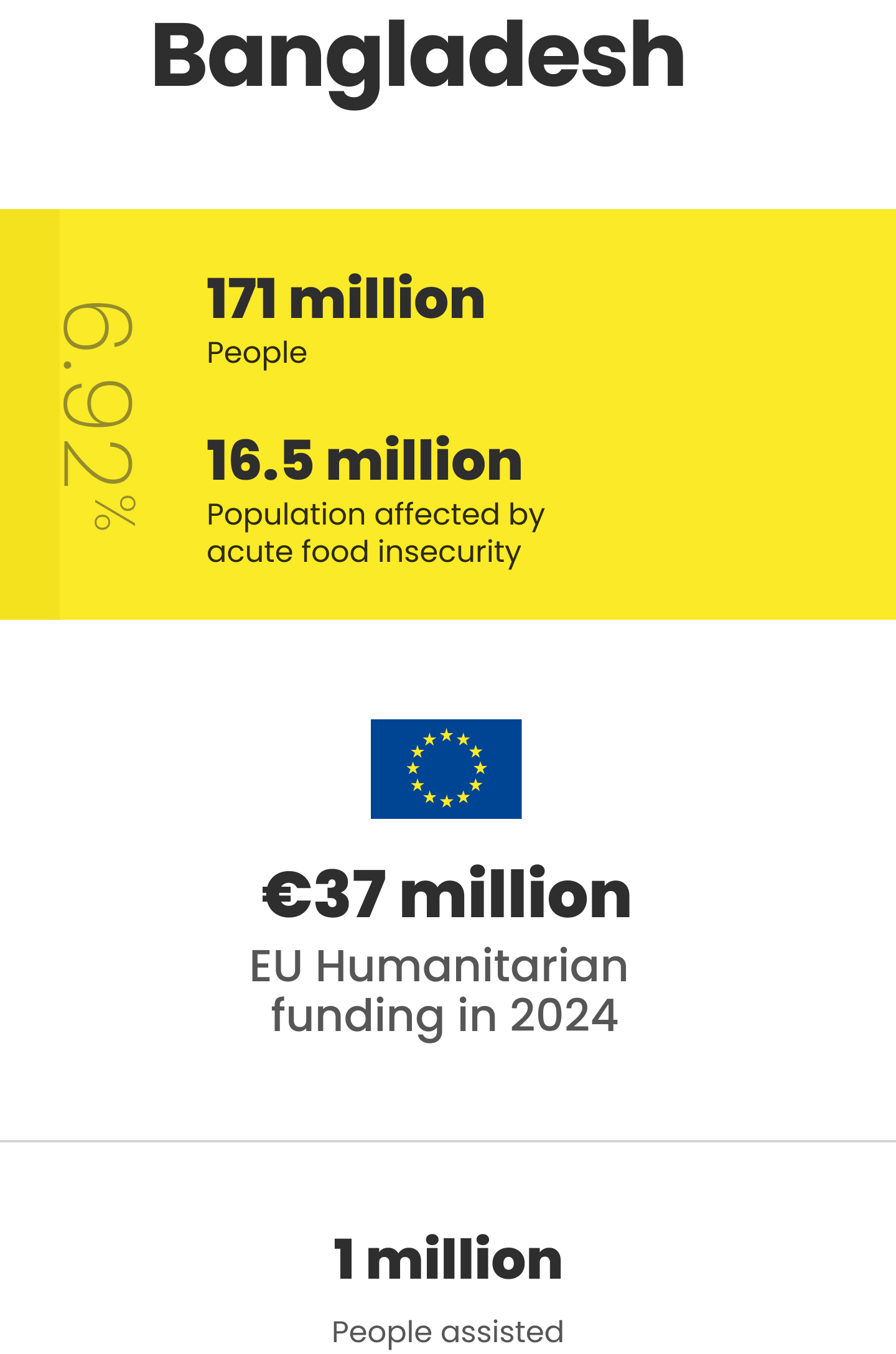


Stories of
positive change
Behind every world hunger statistic are the stories of people marked by hardship. Destabilised by economic shocks, extreme weather and escalating conflicts, countries like Yemen, Chad, Bangladesh, and many more are facing acute food insecurity.
Despite the bleak outlook, what matters is that food assistance brings hope to thousands of people every single day, sustaining them beyond sustenance, with hope.
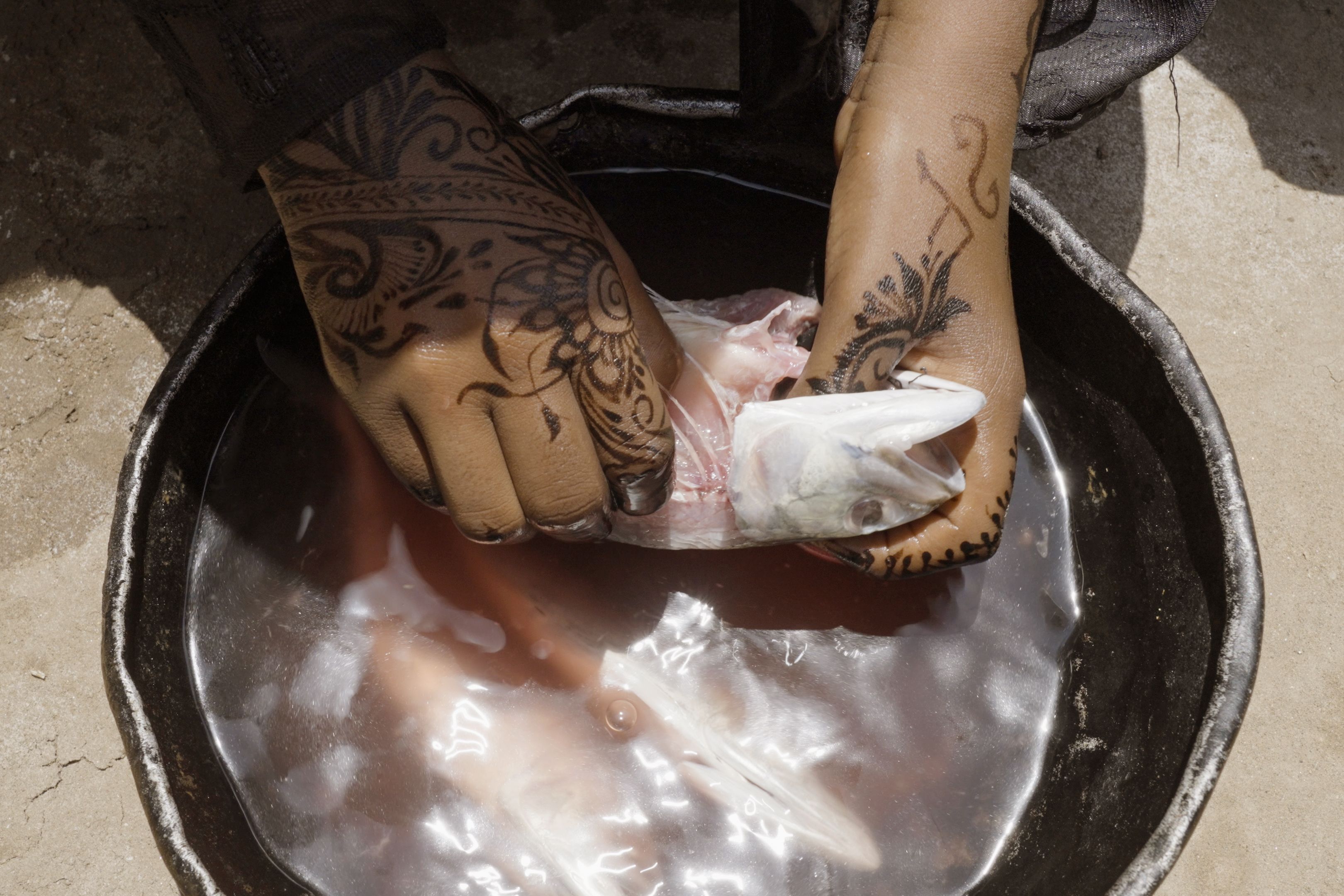
© Olivier Laban-Mattei/MYOP for ECHO
© Olivier Laban-Mattei/MYOP for ECHO


© Olivier Laban-Mattei/MYOP for ECHO
© Olivier Laban-Mattei/MYOP for ECHO
Yemen
Memories of tomorrow

Arranging a spontaneous potluck dinner with your closest friends to spend the night in good company. Or just coming home from a long day to a wonderful smell of something cooking in the kitchen. Everyday moments in life we take for granted or don’t think about because they just are. Imagine, if the mere memories of these moments were all you had.
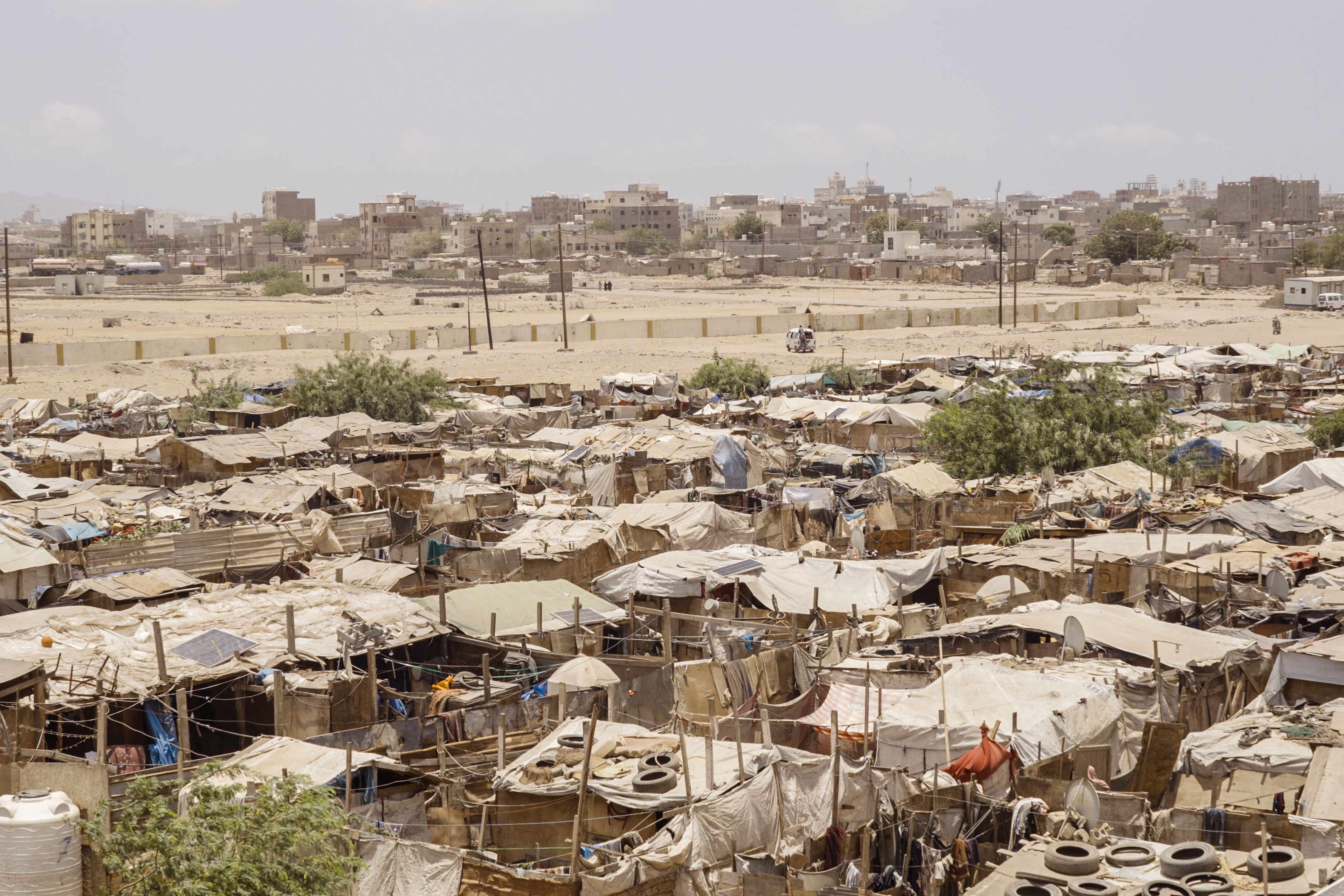
© Olivier Laban-Mattei/MYOP for ECHO
© Olivier Laban-Mattei/MYOP for ECHO

© Olivier Laban-Mattei/MYOP for ECHO
© Olivier Laban-Mattei/MYOP for ECHO
For the many people living in Yemen’s Ammar Bin Yasser camp, that’s their reality. They left their homes with nothing but what they could carry in their arms and hearts, hoping one day to be able to return to their hometowns and villages. After almost a decade of internal conflict, Yemen remains one of the most food insecure countries in the world. Living your life under these harsh circumstances requires a level of resilience and determination that cannot be sustained on hope alone.
Today, 5 million children under 5 and 2,7 million pregnant and lactating women in Yemen are in need of integrated nutrition assistance just to get by, and EU humanitarian aid is there providing food assistance through cash and in-kind. For those who have been internally displaced for almost a decade now, it’s no longer a matter of holding on to memories, but about the opportunity to build a better tomorrow with new memories.
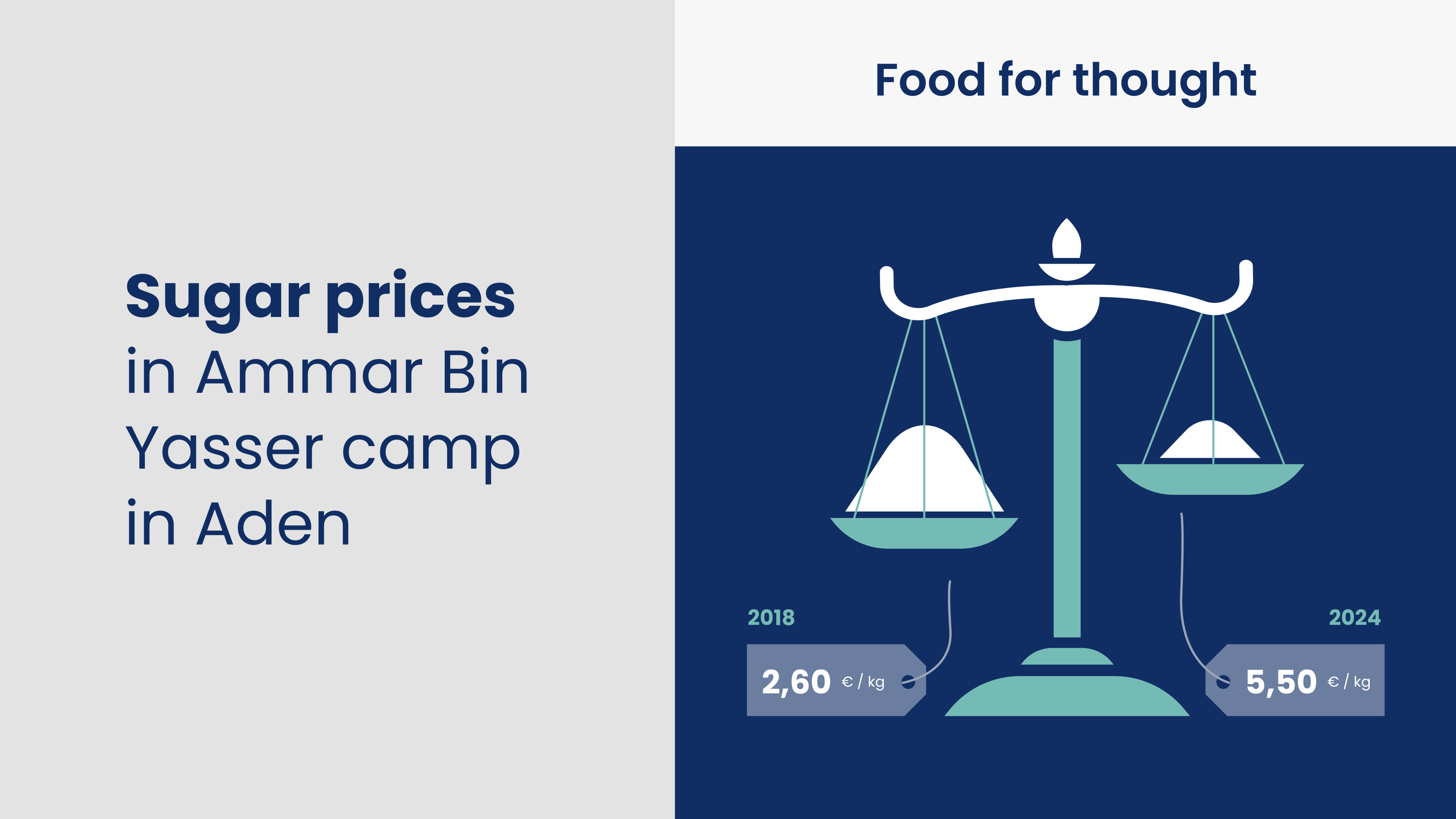
Meet Abdulaleem
Before arriving to Ammar Bin Yassar in 2018, Abdulaleem and his wife lived normal lives in Al Hudaydah, Yemen. Fleeing their home hasn’t been an easy journey, but they are doing their best with the means they have.
As a parent, Abdulaleem’s first priority is his family. Along with his wife and six children, he now lives in the Ammar bin Yasser camp in Yemen where he is active in the community and dedicated to helping others. Working to make the situation better for not only himself, but others in need.
© Olivier Laban-Mattei/MYOP for ECHO

© Olivier Laban-Mattei/MYOP for ECHO
© Olivier Laban-Mattei/MYOP for ECHO
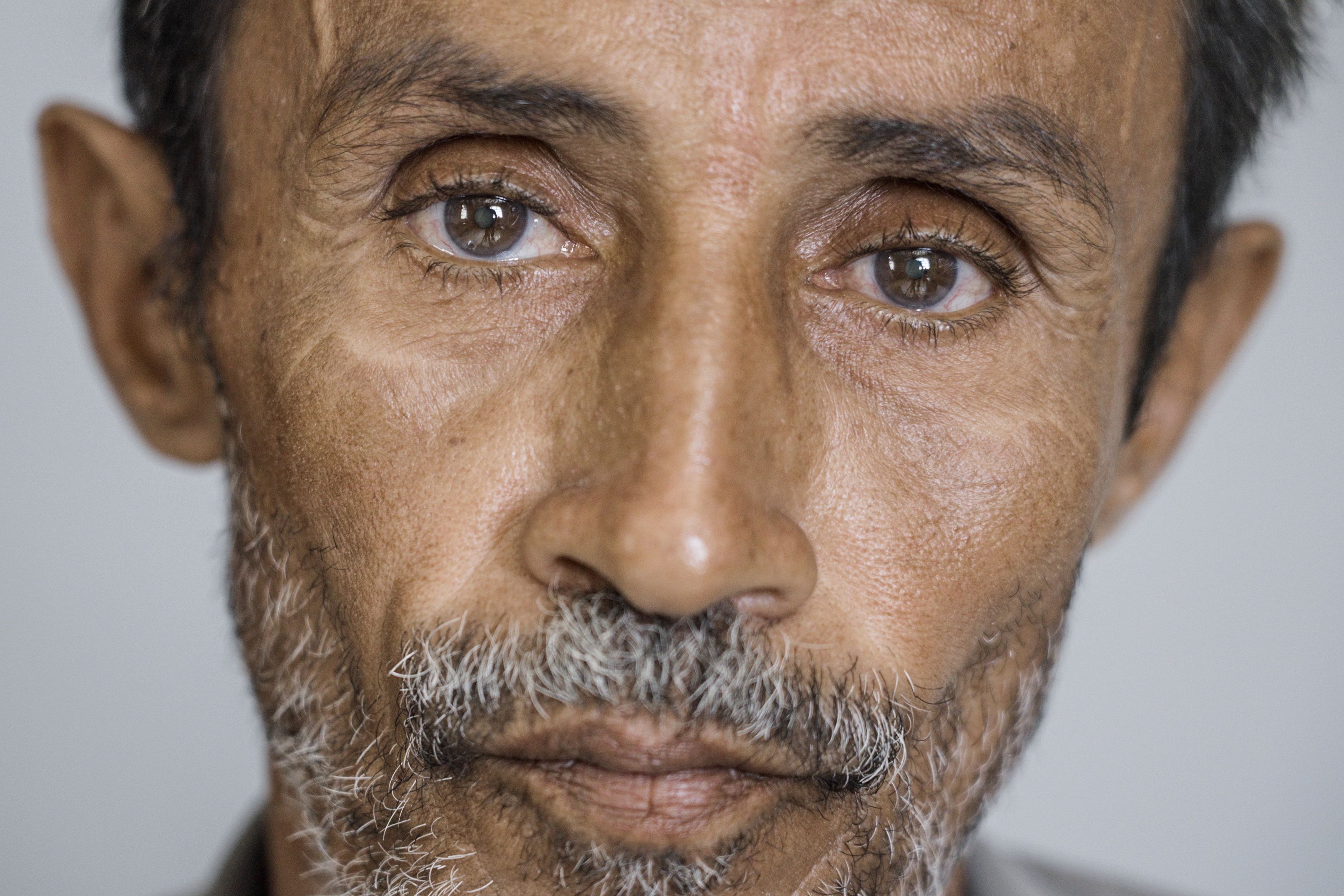
© Olivier Laban-Mattei/MYOP for ECHO
© Olivier Laban-Mattei/MYOP for ECHO
Every day Abdulaleem fights a battle to provide three meals for his family as he dreams of a better future. It’s hard work, and they have to remain positive throughout – supporting each other as well as the community – feeding hope to others in an impossible situation. The EU’s food assistance helps him win that battle, offering him and his loved ones a daily dose of normalcy in a life that is anything but.
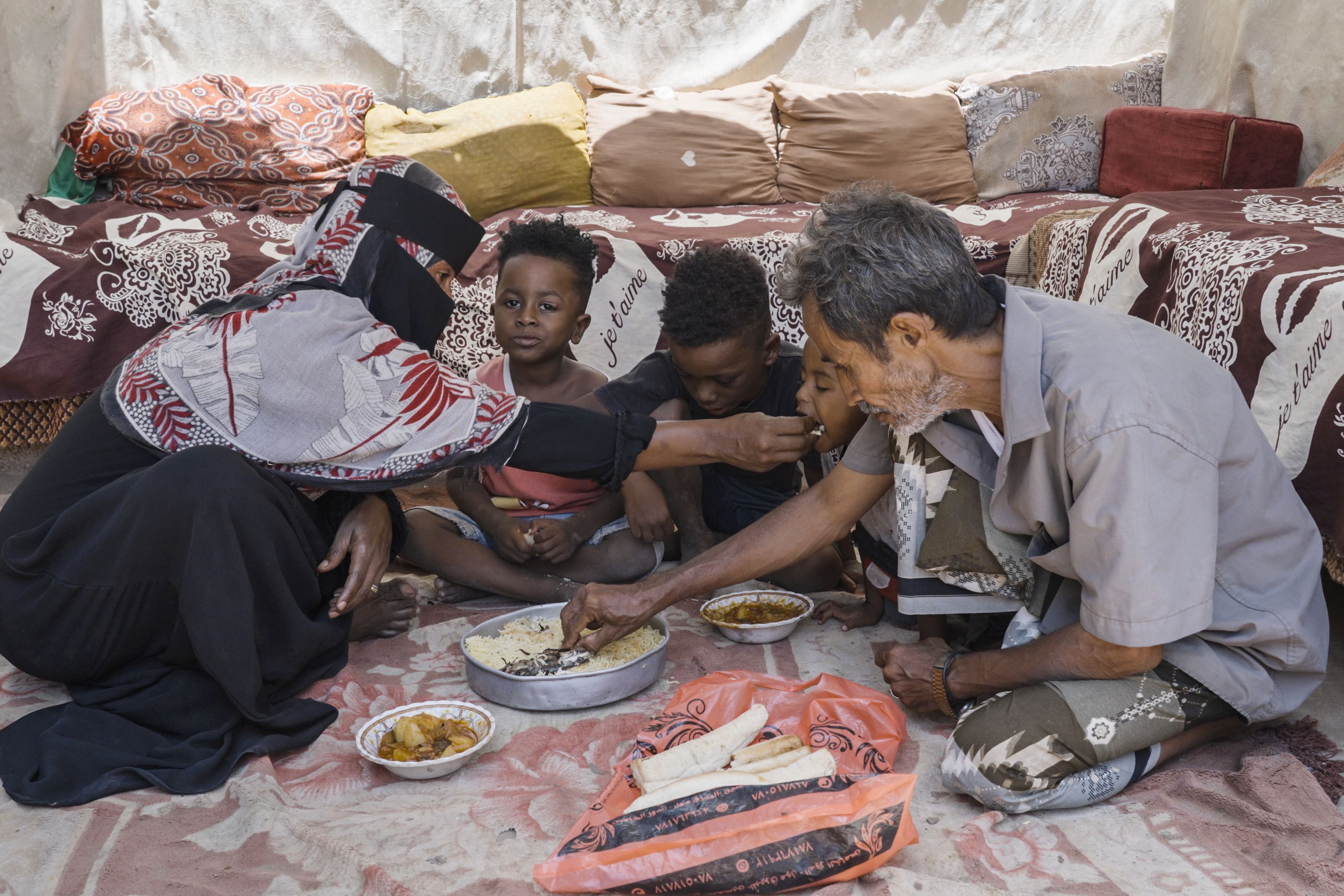
© Olivier Laban-Mattei/MYOP for ECHO
© Olivier Laban-Mattei/MYOP for ECHO
Learn more about Abdulaleem and how
EU humanitarian aid makes a difference.
Production: MYOP, 2024. Directors: Olivier Jobard, Olivier Laban-Lattei, Julien Pebrel - from MYOP. Editing: Claire Billet.
Chad
Committed to change

Ever been so busy you forgot to eat? Or have you ever woken up in the morning with a clear idea of what you’re having for dinner? For many of us, food can be an afterthought or even a habit. But one thing it isn’t? For most of us, food is hardly ever a worry or even uncertainty.
In Farchana, Eastern Chad, the worries are many and the outlook bleak. The current influx of Sudanese refugees fleeing from war, paired with the consequences of recurrent natural hazards, have resulted in over 800,000 people suffering from acute food insecurity in of need humanitarian assistance.

© Julien Pebrel/MYOP for ECHO
© Julien Pebrel/MYOP for ECHO

© Julien Pebrel/MYOP for ECHO
© Julien Pebrel/MYOP for ECHO
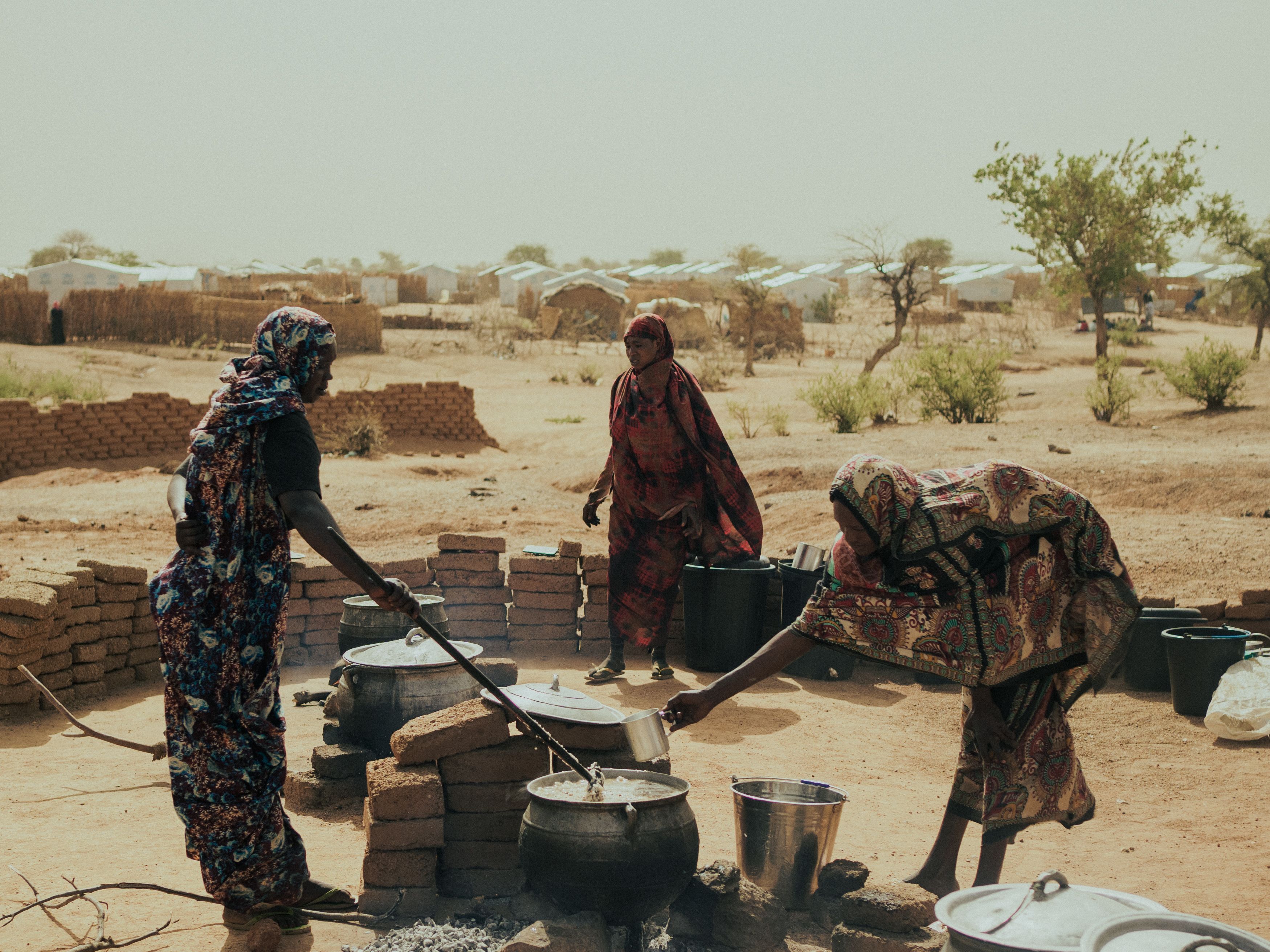
© Julien Pebrel/MYOP for ECHO
© Julien Pebrel/MYOP for ECHO
The deterioration of the conditions in the East of the country is only the latest crisis affecting Chad, one of the poorest countries in the world, with a long history of low development and very limited social services.

© Julien Pebrel/MYOP for ECHO
© Julien Pebrel/MYOP for ECHO

© Julien Pebrel/MYOP for ECHO
© Julien Pebrel/MYOP for ECHO
Living a day-to-day, hand-to-mouth existence is the reality for too many people in Chad. The EU humanitarian aid is working to ensure that vulnerable communities and people in need there have access to basic needs, like food and life-saving treatments. There are so many things we take for granted in life, but the harsh reality for millions implores us to face some important truths in the world.
This is
Bousseina
Pregnant, baby in her arms, barefoot, and hurt. That’s how Bousseina arrived in Farchana, Chad from Sudan. Having survived the murder of her husband, herself badly tortured, she made her way to safety.
Today, Bousseina and her two children live with dreams of a better future but harbor no desire to return to their home. When memories cause more pain than joy, the only solution is to look ahead and make new ones. Starting over and building a new life is never easy but for millions like Bousseina, that’s the only option and a little help can go a long way.
© Julien Pebrel/MYOP for ECHO

© Julien Pebrel/MYOP for ECHO
© Julien Pebrel/MYOP for ECHO

© Julien Pebrel/MYOP for ECHO
© Julien Pebrel/MYOP for ECHO
Having a routine is essential to establishing consistency and the EU’s food assistance helps provide stability and security to Bousseina and her children. In a time with so much uncertainty, sitting down as a family to enjoy a meal can provide a much-needed relief.
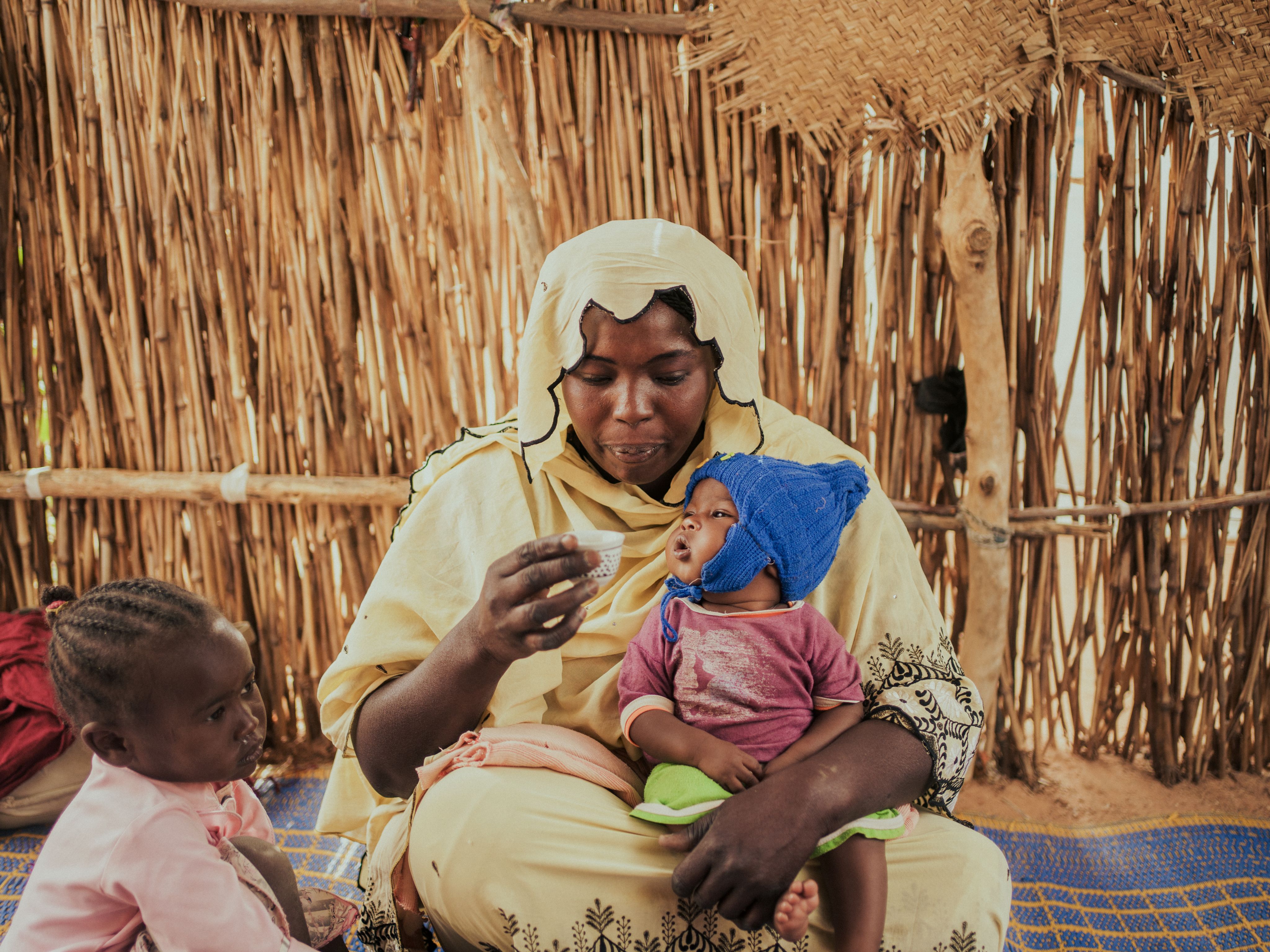
© Julien Pebrel/MYOP for ECHO
© Julien Pebrel/MYOP for ECHO
Watch the film to learn how EU humanitarian
aid helps Bousseina and her family.
Production: MYOP, 2024. Directors: Olivier Jobard, Olivier Laban-Lattei, Julien Pebrel - from MYOP. Editing: Claire Billet.
Bangladesh
A taste of the past, present and future
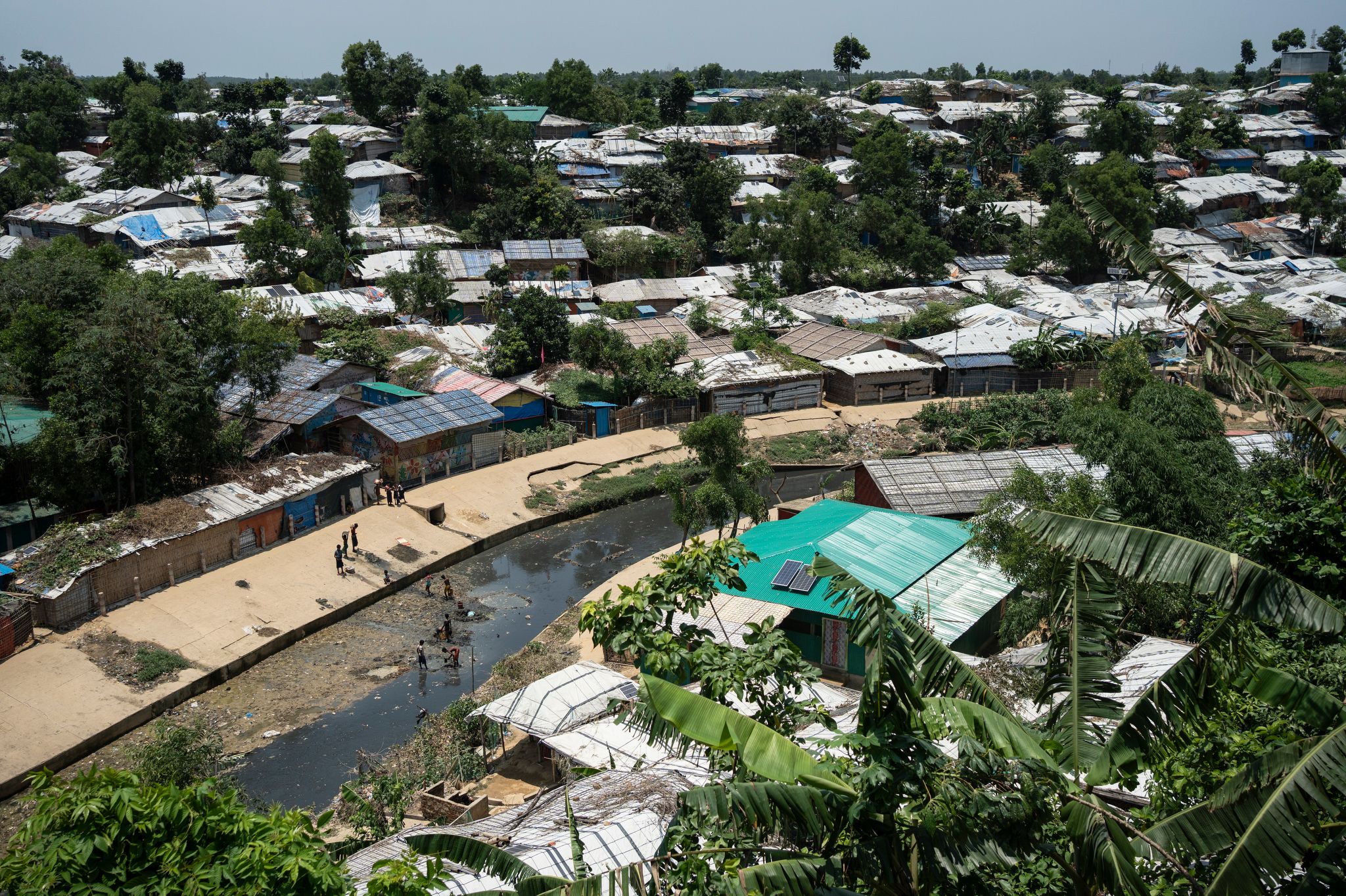
We all have that secret go-to ingredient when we cook our loved ones’ favorite meals, and we all have different table manners and customs. Similarly, we all recall certain memories from specific tastes that transport us back to our childhood. Wherever we go in this world, we carry these with us as a part of us and where we come from – a sort of ancestral footprint on our being that has been passed down through generations, ready to pass on to the next.
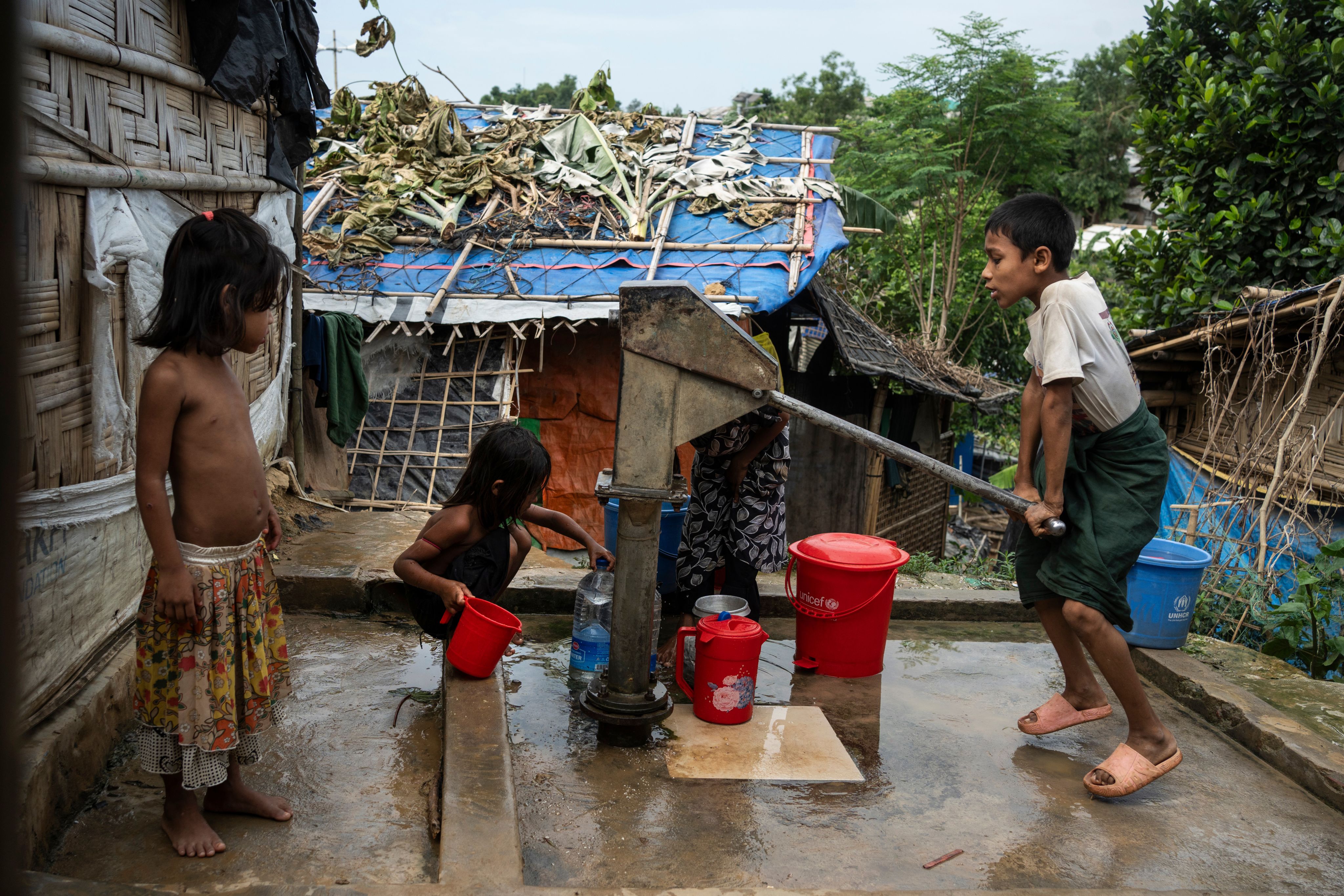
© Olivier Jobard/MYOP for ECHO
© Olivier Jobard/MYOP for ECHO

© Olivier Jobard/MYOP for ECHO
© Olivier Jobard/MYOP for ECHO
In the camps in Cox’s Bazar in Bangladesh, nearly 1 million Rohingya refugees are holding on to their culture and history as they try to build new futures. Holding on to a semblance of normalcy when faced with the risk of hunger is a whole other story. It is estimated that 422,705 Rohingya in Cox's Bazar are facing high levels of food insecurity but thanks to additional funding, EU humanitarian aid was able to increase food rations to better address their needs in 2024.
In addition to being a necessity to life, food is also the way we show love. A way to share and pass on our culture and family heritage. Providing food to millions in immediate need is both a way to preserve lives and history, as well as to ensure the survival of not only the people, but an entire way of life.
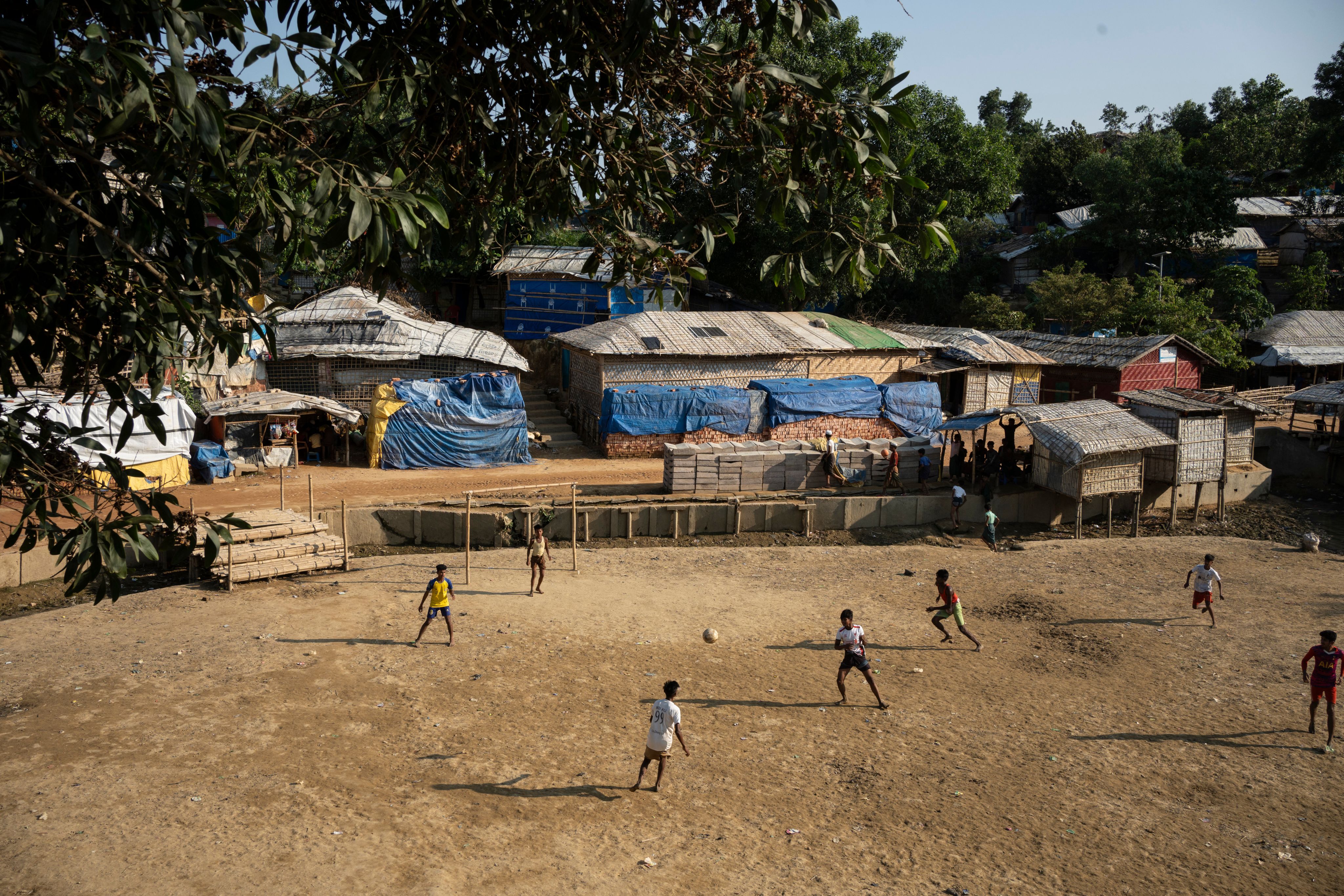
© Olivier Jobard/MYOP for ECHO
© Olivier Jobard/MYOP for ECHO
Introducing Sabekun
In 2017, Sabekun and her three children came to Cox’s Bazar in Bangladesh from Myanmar and they had to build a new life for themselves. At just 24 years old, Sabekun has endured more hardship than most do in a lifetime, and yet, she still smiles.
In spite of her circumstances and struggles, Sabekun is thankful for the skills she learned as a little girl and can use to provide for her family. Learnings and life lessons were all she could take with her and today she can sow clothes for her family. It is this acquired skill that has also taught Sabekun the importance of and value in knowing where you are from, no matter where you are now, or going to be in the future.
© Olivier Jobard/MYOP for ECHO
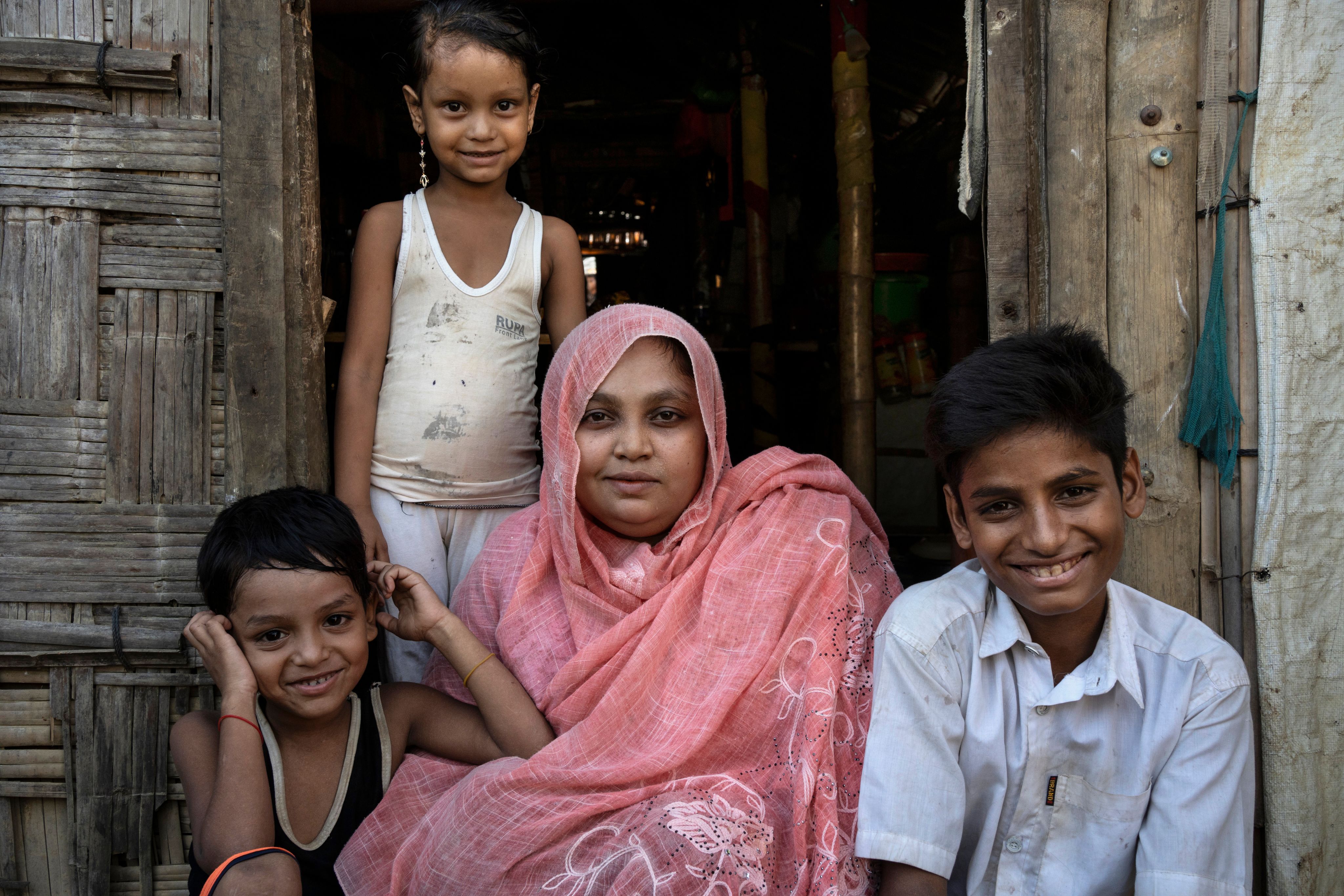
© Olivier Jobard/MYOP for ECHO
© Olivier Jobard/MYOP for ECHO
For Sabekun, the future is her kids and everything she does, she does for them. Thanks to the EU’s food assistance, she doesn’t have to worry about her next meal and is freer to focus on her children.

© Olivier Jobard/MYOP for ECHO
© Olivier Jobard/MYOP for ECHO

© Olivier Jobard/MYOP for ECHO
© Olivier Jobard/MYOP for ECHO
Watch Sabekun’s story and learn how
EU humanitarian aid feeds hope for her family
Production: MYOP, 2024. Directors: Olivier Jobard, Olivier Laban-Lattei, Julien Pebrel - from MYOP. Editing: Claire Billet.
Spotlight on Gaza
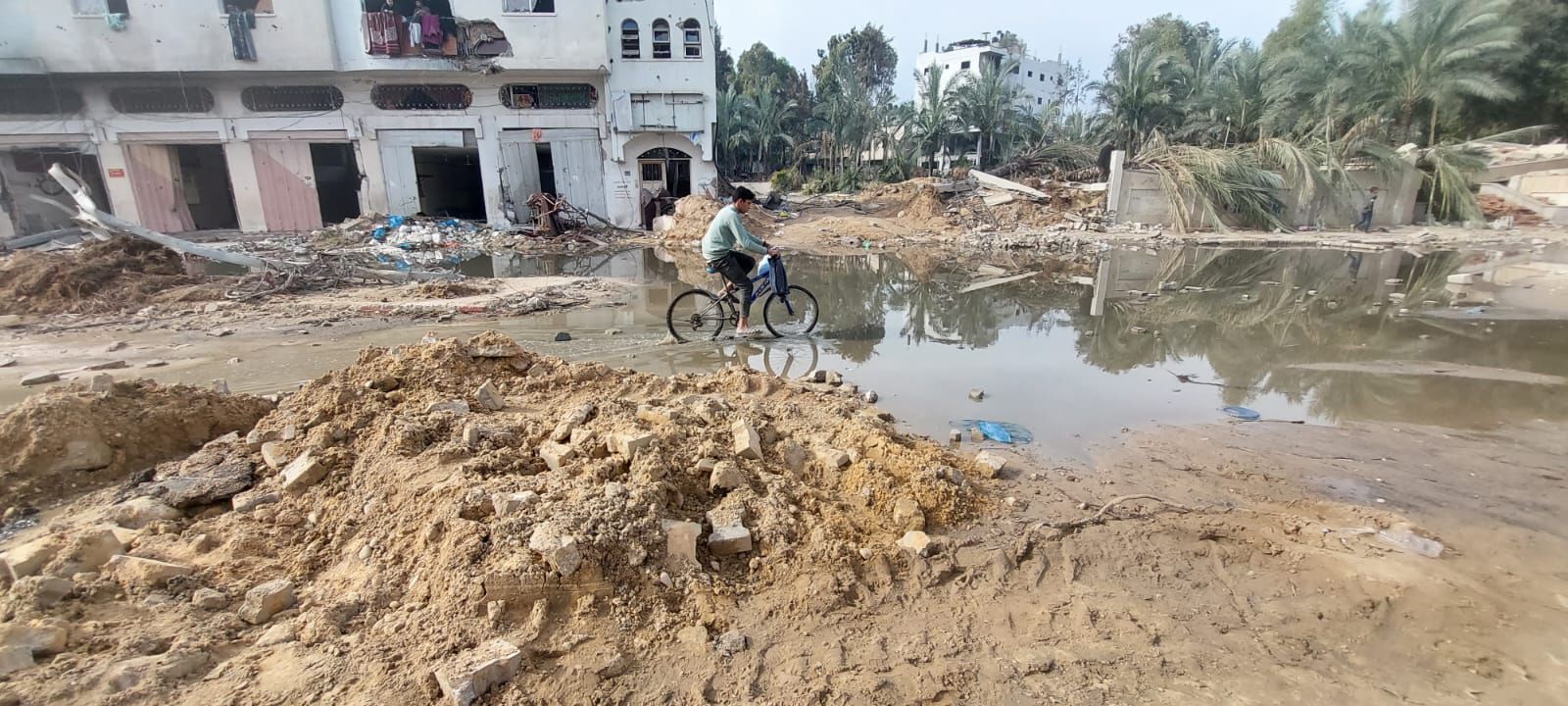
We make every effort to respond to crises all over the world by bringing food relief to affected communities, wherever they are.
Right now, half the population in Gaza faces catastrophic hunger and starvation. Hundreds of thousands of children, instead of having a carefree childhood filled with fun and play, go to bed hungry every night.


© UNRWA shelters/Mohammed Mikkawi
© UNRWA shelters/Mohammed Mikkawi
The EU has called for the protection of livelihoods, food production, cargo movement and distribution assets and is working tirelessly to mobilise significant funding for life-saving food supplies.

© UNRWA shelters/Mohammed Mikkawi
© UNRWA shelters/Mohammed Mikkawi
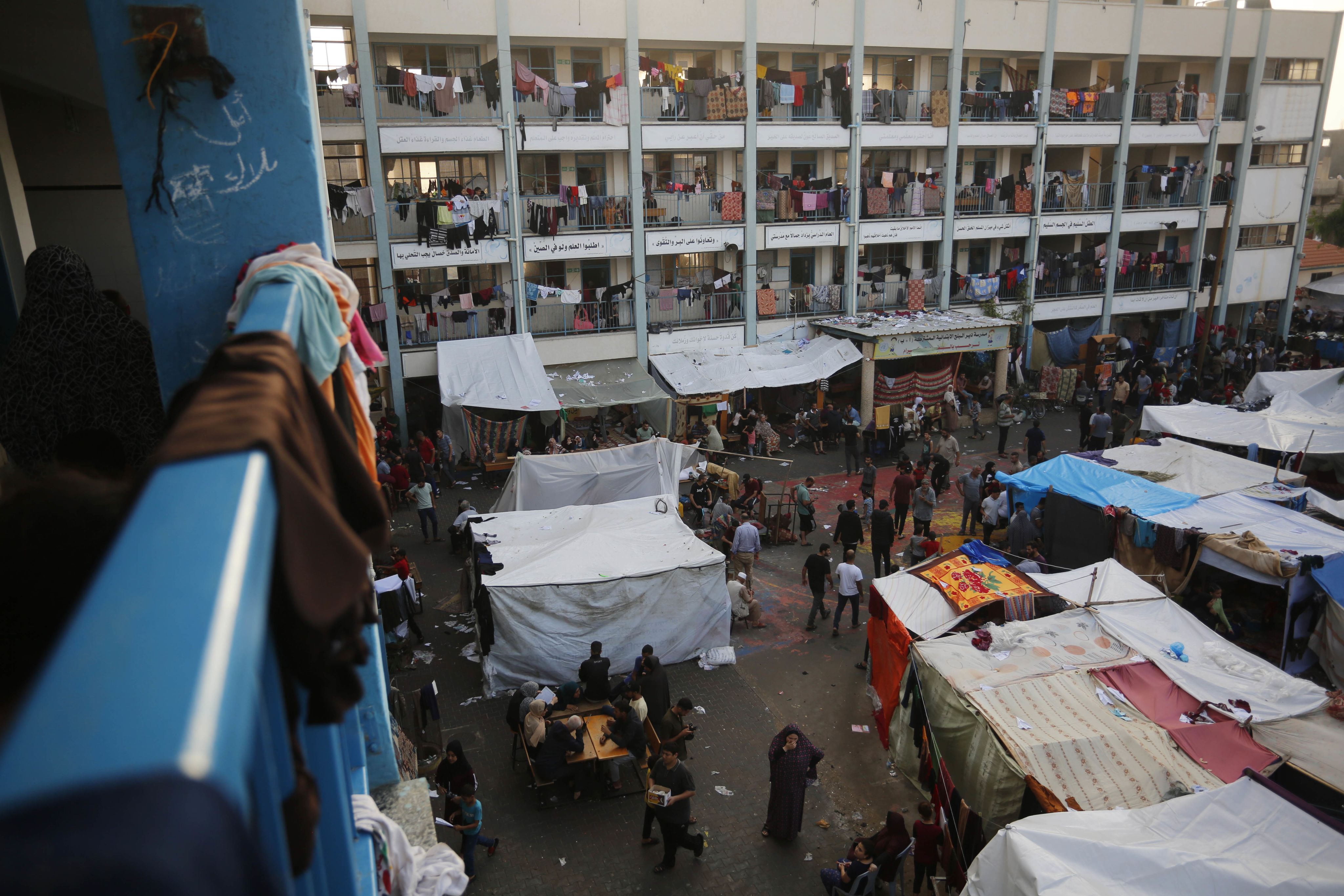
© UNRWA shelters/Mohammed Mikkawi
© UNRWA shelters/Mohammed Mikkawi